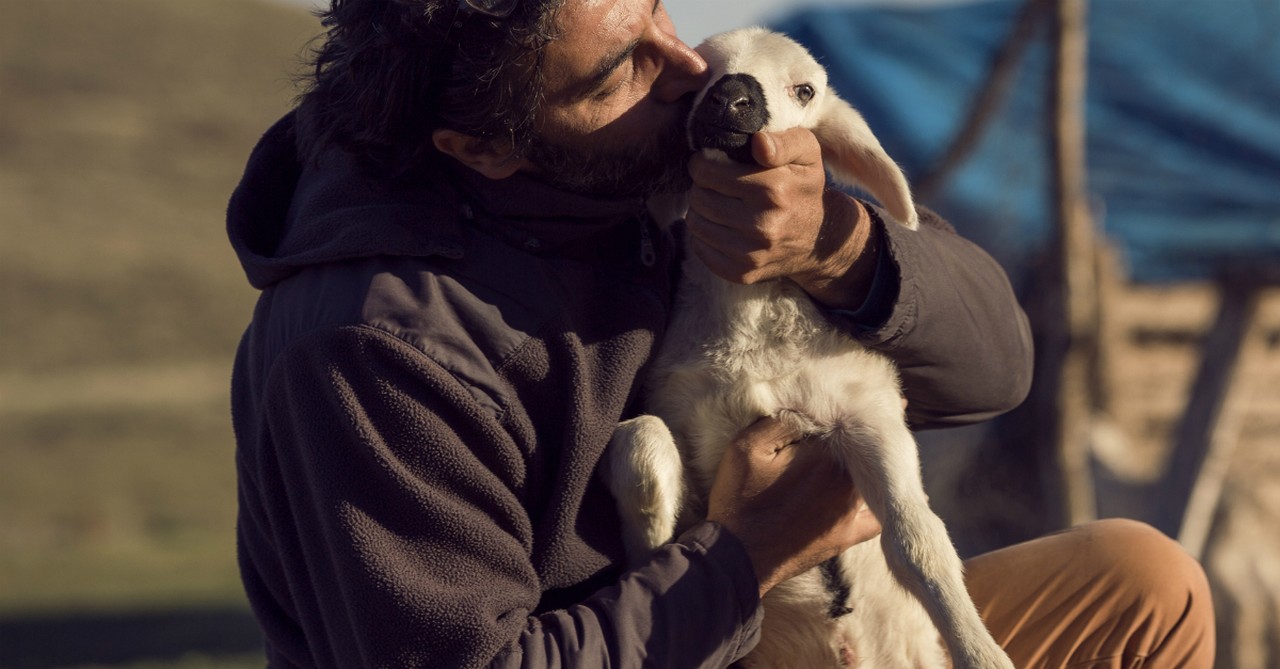What ‘My Cup Runneth Over’ Means in Psalm 23 and Always

Thou preparest a table before me in the presence of mine enemies: thou anointest my head with oil; my cup runneth over. – Psalm 23:5 (KJV)
There aren’t many people who lived as full and unpredictable a life as David.
A shepherd who became a giant killer. A warrior who became a fugitive. A king who became the ancestor of the King of Kings and promised messiah, Jesus Christ.
Sounds like a voiceover for a movie trailer doesn’t it? But wait, there’s more. In addition to being a shepherd, warrior, and king, David was also an incredible poet and songwriter. You wouldn’t expect to see shepherd-warrior-poet-king at the top of most resumes, but that was David, referred to in Scripture as “a man after God’s own heart.” (1 Samuel 13:14)
Through his many songs, which today we call the Psalm, the warrior poet (I like the sound of that) was as eloquent and honest as they come. When his life was threatened and he was on the run from Saul, he turned his pain into poetry, crying out to God in his despair. When he was overwhelmed by the goodness of God, he put pen to paper and poured out his heart in praise.
David worshipped, he complained, he asked God for answers in times of doubt. And through it all, he was met with the never-ending love of a personal and purposeful God, who was with him every step of the way.
Many of David’s psalms carry a tone of anguish, and the guy definitely went through his fair share of tough times to warrant that kind of emotion. Psalm 23, however, has a completely different message.
To this day, it is one of the most uplifting and inspirational songs ever written and definitely David’s most famous. With the 23rd Psalm, David praised the goodness and faithfulness of God using perhaps the most iconic metaphor for God in all of Scripture: “The Lord is my shepherd.” (Psalm 23:1)
Later in Psalm 23, David wrote that, with God, “my cup overflows.” (Psalm 23:5) Now there are a couple of ways to read this and several implications of this phrase, but in every interpretation, the same driving themes exist.
God is good, God is faithful, God is generous, and God takes care of his sheep.
Let’s look at some of the context around Psalm 23.
Photo Credit: ©GettyImages/BBuilder
What Is the Context of Psalm 23?

What Is the Context of Psalm 23?
SLIDE 1 OF 5
“Write what you know.” It’s a saying known to most writers. Given David’s experience as a shepherd, it seems he took this advice to heart when he sat down to write the 23rd Psalm.
David recognized, as both a former shepherd and lifelong servant of God, that God was truly the shepherd of his life. Here we find the appropriateness of David’s figurative language as it describes his relationship with God—and God’s relationship with us.
A shepherd is the leader of his sheep (Psalm 23:1).
He cares for them (Psalm 23:2-3; Psalm 121:3; Hebrews 13:6).
He provides for them (Psalm 23:1; Philippians 4:19).
He protects them (Psalm 23:4; Psalm 46:1; Psalm 138:7).
He guides them to where they need to be (Psalm 23:2-3; Isaiah 58:11).
He never leaves or abandons them (Psalm 23:4; Deuteronomy 31:6; Isaiah 41:10).
What a beautiful way to describe the love and commitment of God to his beloved sheep. As the prophet Isaiah later wrote, “like a shepherd He will tend His flock, in His arm He will gather the lambs and carry them in His bosom; He will gently lead the nursing ewes.” (Isaiah 40:11)
So how does God provide this shepherding?
Photo Credit: ©GettyImages/Mahiruysal
Psalm 23 Points to Jesus Christ as the ‘Good Shepherd’

Psalm 23 Points to Jesus Christ as the ‘Good Shepherd’
SLIDE 2 OF 5
In comparing God to a shepherd, David also laid the groundwork for Jesus Christ to step into that role as the promised Messiah, who would soon rescue and redeem humanity, who were, “like sheep without a shepherd” (Matthew 9:36; 1 Peter 1:25).
In John’s gospel, Jesus referred to himself as the “good shepherd.” Anyone familiar with Psalm 23 would have picked up on the obvious connection. However, Jesus also said that the good shepherd, “lays down his life for his sheep.” (John 10:11).
Stubborn, smelly, and sometimes foolish sheep (that’s us)...and the good shepherd loved us so much that he was willing to die for us (John 3:16)
But more than just a “hired hand,” Jesus affirmed that, “I am the good shepherd, and I know my own and my own know me.” (John 10:14). As he said in Matthew’s gospel, “even the very hairs on your head are numbered.” (Matthew 10:30)
A shepherd who knows and cares for his sheep is trusted by his flock. They recognize his voice and follow him wherever he goes. They may wander from time to time, but when he pursues them (Matthew 18:12) and calls them (by name), they answer.
This is all important context for Psalm 23:5 because it informs what David was trying to communicate and why the phrase “my cup overflows” is relevant to Christians today.
Let’s look at all that God offers His sheep:
Photo Credit: ©GettyImages/Remedios
God Goes Above and Beyond to Provide for His Sheep

God Goes Above and Beyond to Provide for His Sheep
SLIDE 3 OF 5
God provides. It might be one of the biggest revelations and takeaways from Psalm 23:5. Just look at the language David used in this chapter.
“I shall not want.” (Psalm 23:1)
“He restores my soul.” (Psalm 23:3)
“He guides me in paths of righteousness.” (Psalm 23:3)
“Your rod and your staff they comfort me.” (Psalm 23:4)
“You prepare a table for me.” (Psalm 23:5)
“You anoint my head with oil.” (Psalm 23:5)
“Surely goodness and mercy will follow me all the days of my life.” (Psalm 23:6)
David didn’t shy away from praising the faithfulness and goodness of God in providing for his every need, which aligns perfectly with what the apostle Paul later wrote when he said, “and my God will supply all your needs according to His riches in glory in Christ Jesus.” (Philippians 4:19)
A good shepherd is more than just good at what he does; he is good at heart and wants what’s best for his flock (Psalm 34:10; Luke 12:34).
Turning to the “cup” metaphor, we, as sheep, become like guests invited into God’s house (Psalm 23:6). There, the host makes sure that our cups are full and that we are well taken care of. Jesus said, “for even the Son of Man did not come to be served, but to serve, and to give His life a ransom for many.” (Mark 10:45)
However, more than just a cup that has some drink in it, the cup David described is a cup that “overflows.”
David had encountered God’s favor firsthand and knew better than anyone that God is definitely not stingy when it comes to caring for his sheep. He provides for our needs and is generous in doing so. He doesn’t hesitate to offer us his best, and there is no limit to how much God can give. He gives and gives in abundance, physically but also spiritually, and that is the point.
The greatest gift God offers is the gift of his presence and the provision of his spirit, which he pours out generously upon those who seek him (Joel 2:28-29; Zechariah 12:10; Luke 11:9).
This, therein, leads to the second implication of the cup that overflows.
Photo Credit: ©Unsplash/Jaka Skrlep
The Cup of Psalm 23 Points to the Cup of Christ’s Suffering

The Cup of Psalm 23 Points to the Cup of Christ’s Suffering
SLIDE 4 OF 5
On the night before his crucifixion, in the Garden of Gethsemane, Jesus cried out to God, “My Father, if it is possible, let this cup pass from Me; yet not as I will, but as You will.” (Matthew 26:39)
Jesus knew the agony that awaited him at the cross, an agony he was willing to endure for the sake of his sheep. He had even warned his disciples that this would happen just hours before, during their last supper together. Here, a cup was used again, this time as Jesus related the Passover meal to his eventual sacrifice. “And when He had taken a cup and given thanks, He gave it to them, saying, ‘drink from it, all of you; for this is My blood of the covenant, which is poured out for many for forgiveness of sins.’” (Matthew 26:27-28)
As a fulfillment of prophecy, Jesus didn’t just spill one drop of blood. The shepherd became the sacrificial lamb who was willing to give it all so that we, his sheep, might be saved.
Earlier in Matthew’s gospel, the mother of James and John, two of Christ’s disciples, came to Jesus and asked if her sons could be seated at his right and left in eternity. To this, Jesus asked, “are you able to drink the cup that I am about to drink?” (Matthew 20:22). James and John quickly answered, “yes,” most likely unaware of what Jesus meant.
Jesus warned his disciples that they too would face persecution and hardship in life (James 1:2-4; 2 Timothy 3:12). This is a message for today’s Christians as well. However, Jesus reminds us all that, “these things I have spoken to you, so that in Me you may have peace. In the world you have tribulation, but take courage; I have overcome the world.” (John 16:33)
Not unlike the 23rd Psalm, the good shepherd promises to never abandon his sheep. “Even though I walk through the valley of the shadow of death, I fear no evil, for You are with me,” David writes (Psalm 23:4)
David concluded his most famous Psalm with the words, “surely goodness and lovingkindness will follow me all the days of my life, and I will dwell in the house of the Lord forever.” (Psalm 23:6)
As someone who had encountered the fullness of God’s favor and abundance of God’s presence, David trusted that God’s best was still to come. He had only scratched the surface of God’s blessing and favor.
Even in the midst of life’s most crazy, trying moments, the shepherd was never far. He always had a plan and that plan was good. These are words that encourage Christ’s followers because they are just as true today.
So why is God so generous?
Photo Credit: ©GettyImages/PrairieArtProject
God Encourages His Followers to Be Generous with All He Has Given

God Encourages His Followers to Be Generous with All He Has Given
SLIDE 5 OF 5
A cup that overflows with God’s goodness and generosity will naturally spill out into the world and affect those around us, or at least it should.
As God is generous with us, he expects us to be generous in giving to others. “Give, and it will be given to you. They will pour into your lap a good measure—pressed down, shaken together, and running over. For by your standard of measure it will be measured to you in return.” (Luke 6:38)
And as our cups overflow with the goodness and faithfulness of God, so should our hearts overflow with praise as well—as the peace, hope, joy, and love of God that we share freely with others.
This is a wealth far more valuable than any earthly treasure. And our God, our good shepherd, is happy to make wealthy his sheep with the outpouring of his spirit, love, and favor.
“Now may the God of hope fill you with all joy and peace in believing, so that you will abound in hope by the power of the Holy Spirit.” (Romans 15:13)
Photo Credit: ©GettyImages/BrianAJackson

Originally published May 11, 2020.






